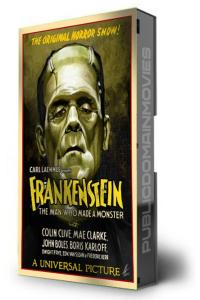Frankenstein


Frankenstein (1931): The Birth of Cinematic Horror and a Monster with a Soul
James Whale’s Frankenstein (1931) is more than a landmark of horror—it's a defining moment in film history. Loosely based on Mary Shelley’s novel, this Universal Pictures classic gave audiences their first true cinematic monster who was as pitiable as he was terrifying. Under Whale’s visionary direction, the story of man playing god is brought to life with moody German Expressionist visuals and a tight narrative that still feels urgent nearly a century later. The gothic set design, thunderclap soundscape, and shadowy lighting build an atmosphere of dread that lingers well beyond the screen.
Boris Karloff, in a role that would etch his name into cinematic immortality, delivers a nearly silent performance as the Monster—tragic, childlike, and all too human. Colin Clive as Henry Frankenstein (the name change from Victor is one of many liberties) plays the obsessed scientist with jittery intensity, while Mae Clarke provides grounding emotion as his fiancée, Elizabeth. But it is Karloff who owns the film, transforming a stitched-together creature into a being that evokes empathy even in moments of violence. Whale, a former stage director, orchestrates the moral complexities with a graceful hand, asking the audience not what the Monster is, but what made him that way.
Frankenstein (1931) is not in the public domain; it remains under copyright by Universal Pictures as part of their classic horror catalogue. If you're searching for where to watch Frankenstein (1931) online for free, make sure to explore legal and licensed platforms. This version is LQ fanedit available via Archive.org. This film is essential viewing for anyone interested in the origins of horror, the power of silence in performance, and how a monster film can quietly break your heart.






